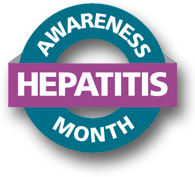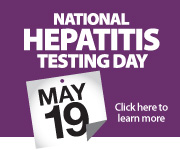Maureen Fitzgerald
ATTC Network Coordinating Office
 Dr. Ryan Westergaard, MD, PhD, MPH, is an Assistant Professor of Medicine in the Division of Infectious Diseases at the University of Wisconsin Department of Medicine, School of Medicine and Public Health. His research centers on hepatitis C and HIV treatment outcomes, with a special focus on understanding the ways in which addiction and mental illness can impede treatments for these infections.
Dr. Ryan Westergaard, MD, PhD, MPH, is an Assistant Professor of Medicine in the Division of Infectious Diseases at the University of Wisconsin Department of Medicine, School of Medicine and Public Health. His research centers on hepatitis C and HIV treatment outcomes, with a special focus on understanding the ways in which addiction and mental illness can impede treatments for these infections.
How did you begin your work in the field of HIV/HepC infection and substance use disorder treatment?
RW: My research broadly explores the questions of who is benefiting consistently from treatment for HIV and related infections. People with substance use disorders and other mental health issues tend to have inferior treatment outcomes. They use healthcare less consistently, have poorer access to healthcare, and are not linked to many resources that others take for granted. Once they are in treatment, and this is particularly true for those with HIV, people with substance use disorders face additional challenges that make it hard to adhere to medication treatment consistently. When we look at the HIV and hepatitis C among people whose lives are affected by addiction, we see broad health disparities. This population has difficulty controlling the virus, has worse outcomes, and is more likely to spread infection to others.
I did my medical training in Baltimore City, a community that has a very high prevalence of heroin addiction, and I felt that I needed to practice both infectious disease medicine and psychiatry simultaneously. Infections among people living in the community were strongly linked to their drug use, and their other challenges such as poverty, unstable housing, and psychiatric comorbidities made it harder for them to adhere to the treatment we recommended. I became interested and committed to this population that had extraordinary medical, social, and economic needs. I wanted to address their disease, but also the upstream determinants of infectious disease. I also wanted to study the social and behavioral sciences, to gain some insight into why some communities are so strongly affected by drug use.
FAST FACTS
Source:
HIV and Viral Hepatitis Fact Sheet
CDC National Center for HIV/AIDS, Viral Hepatitis, STD, and TB Prevention, Division of HIV/AIDS Prevention
I’m also interested in the structural barriers that make it harder for people to engage in care. An example of this is mass incarceration. One of my first studies was to evaluate the number of risk factors for treatment failure in a group of people with SUD who had been successfully adhering to HIV treatment in the past. What are the markers that people are going to fail treatment and cause the virus to rebound? Of all the things that we measured, becoming incarcerated was the strongest predictor of treatment failure. So it’s not only drug use but also the other factors that drug users encounter that makes it hard for them to make the most out of their HIV or hepatitis C treatment.
This interest has continued to resonate since I moved away from Baltimore, as we are seeing an upsurge in the opioid epidemic and an increase in HIV/Hep C infections in Wisconsin and other states. The sites are demographically different but share the same economic instability, a sense of hopelessness, and limited access to addiction treatment. We can take lessons learned from communities like Baltimore—that have been dealing with an opioid epidemic for a long time—to prevent additional harms in lower income rural and suburban communities are becoming increasingly devastated by the opioids.
What are some of your current research projects?
RW: My current research projects are using innovative methods to identify, in real time, the factors that make it hard for people with HIV/Hep C and addiction to remain engaged in treatment.
One study is testing use of a mobile health application, A-CHESS, which collects information from users on a daily or weekly basis about symptoms of depression, anxiety, stress, poor coping skills, and feelings of hopelessness. We hypothesize that these symptoms are the “upstream” determinants of poor treatment adherence among people with SUD who also have HIV or hepatitis C infection.
The Wisconsin Transitions Study is an observational cohort study of patients with HIV/Hep C treatment who are receiving treatment while in prison. The idea is to increase their continuity of care when released. We are developing relations with community-based clinics to make the transition to continuing care as soon as possible in the reentry process, when there are many deterrents to continuing care for chronic illness and a high risk of relapse to substance use. We are discovering the very important roles of case management and social support during this reentry period.
A related project, funded by the Avenir Award Program at the National Institute of Drug Abuse, is recruiting patients at the HIV clinic at Johns Hopkins in Baltimore. This study is a trial of A-CHESS to improve care coordination for HIV patients who have opioid use disorder. Case managers and social workers are an asset to patient care, but they can get overwhelmed and lack a system for closer patient monitoring. Can we use mobile technology to improve patients’ sense of connection to their sources of care and support?
In these studies, we’re using A-CHESS to assess those variables (depression, anxiety, hopelessness, drug use, cravings) when patients are at high risk of relapse or a lapse in treatment and provide just-in-time support to keep them engaged. We hope to use technology to improve the process so that traditional case managers have a window into the daily lives of their patients who are struggling.
What are the research implications for hepatitis C treatment?
RW: Hepatitis C is an exciting topic right now. In the past five years, treatment has undergone a revolution. In the past, very few people had access to or could tolerate treatment, which involved injectable medications that made people feel terrible for as long as a year. With the new medications available since 2011, we have tools that are very effective, well tolerated, and have near 100% success in curing people of the virus. It’s not inconceivable that we could eliminate hepatitis C if we could organize our health system in a way to get every infected person diagnosed and linked to treatment.
 The problem is that many who are living with the virus have never been tested and don’t know they should be. The way health care is being rationed right now, low- income Americans are being excluded from treatment. Drug prices are so high and health systems are unwilling or unable to provide treatment for everyone who needs it. Many insurance companies and some state Medicaid programs overtly discriminate against people with substance use disorders, enacting policies stating that use of illicit drugs makes people ineligible for HCV treatment.
The problem is that many who are living with the virus have never been tested and don’t know they should be. The way health care is being rationed right now, low- income Americans are being excluded from treatment. Drug prices are so high and health systems are unwilling or unable to provide treatment for everyone who needs it. Many insurance companies and some state Medicaid programs overtly discriminate against people with substance use disorders, enacting policies stating that use of illicit drugs makes people ineligible for HCV treatment.
Another A-CHESS research study involves people with opioid use disorder who are accessing MAT. We’re using the A-CHESS system to disseminate information and provide support for people with hepatitis C. A-CHESS can be a medium to spread information and provide social support. We hope we can influence the community that is using the app, and that they can go out get tested and treatment. This study is to provide information, resources, and support to encourage people to use the available resources to get themselves tested and treated. Our hypothesis is that by getting information out through this application, we can get people to know their status. The goal is to test using the A-CHESS system to move people along the hepatitis C continuum of care, from the diagnostic test to being evaluated, initiated into treatment, adhering to treatment and being cured.
What day-to-day applications will your research have for clinicians and non-clinicians?
RW: I think there is a lot of good we can do for patients who in the past we have labeled in the past as “difficult-to-treat.” We can develop a tool that can help us understand the factors that make them appear that way to us. For some patients more than others, the main determinants of health are social and economic—not strictly biological or genetic. We see patients in the context of our offices and have a pretty narrow window of what they are encountering in their day-to-day lives.
We might be able to use this ubiquitous technology (with tools such as A-CHESS) to gain insight into taking care of people in ways that are more compassionate and culturally sensitive.
 Also, SUD treatment and recovery services organizations can play an important role in making sure that people are screened for hepatitis C and HIV. Patients with SUD continue to underutilize testing for hepatitis. There are not many SUD agencies that offer hepatitis C testing, but there is an opportunity there to build that into standard practice. If they can’t provide rapid testing on site, treatment agencies can also make a difference by encouraging people to get tested.
Also, SUD treatment and recovery services organizations can play an important role in making sure that people are screened for hepatitis C and HIV. Patients with SUD continue to underutilize testing for hepatitis. There are not many SUD agencies that offer hepatitis C testing, but there is an opportunity there to build that into standard practice. If they can’t provide rapid testing on site, treatment agencies can also make a difference by encouraging people to get tested.
Ryan Westergaard, MD, PhD, MPH, attended medical school at Johns Hopkins University. He completed a primary care internal medicine residency at the University of Colorado at Denver, where he was also a staff physician at Denver Health Medical Center. He received fellowship training in infectious diseases at Johns Hopkins Hospital and the Johns Hopkins AIDS Service, and completed clinical research training at the Bloomberg School of Public Health. In 2016, the National Institute on Drug Abuse recognized Dr. Westergaard with an Avenir Award for his pioneering HIV/AIDs research, “Optimizing HIV care for patients with substance use disorders using predictive analytics in a mobile health application (A-CHESS).”